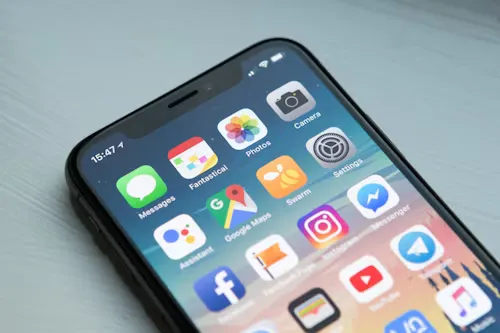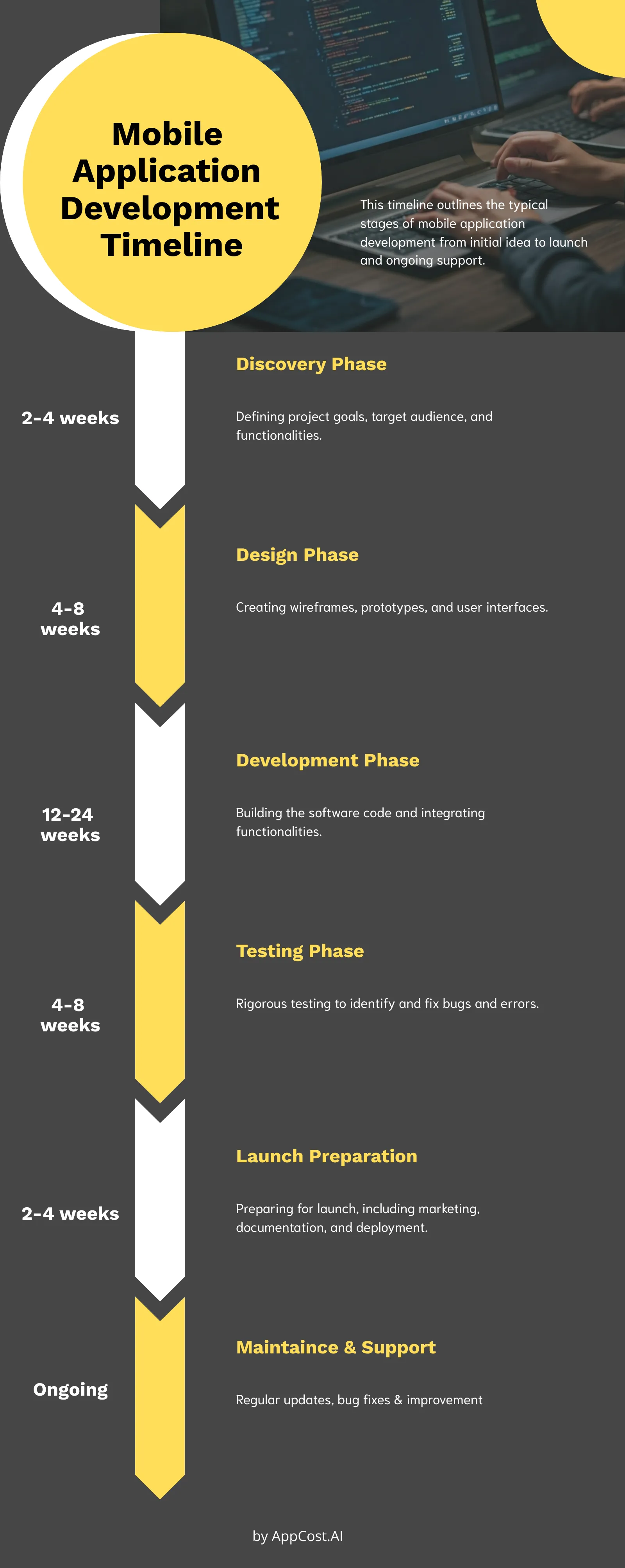Mobile App Development Costs in 2025: A Complete Guide

1. Introduction: Understanding Mobile App Development Costs in 2025
“How much will it cost to build my app?”
It’s the first question every entrepreneur asks, and in 2025’s rapidly evolving tech landscape, accurate cost estimation is more crucial than ever. The mobile market is massive - with 7.4 billion smartphone users globally, over 4 million apps available, and an expected market value of $485 billion this year according to Statista 1. While this presents immense opportunities, it also means the financial stakes are higher than ever when planning your app budget.
I’ve spent the last decade helping businesses navigate these waters, and I’ve seen how cost uncertainty can kill great ideas before they start. That’s why I created this comprehensive guide - to demystify mobile app development costs with real numbers and practical insights. Whether you’re planning a simple MVP or dreaming of the next unicorn app, you’ll learn exactly what drives costs in 2025’s mobile development landscape and how to budget effectively for success.
Let’s cut through the confusion and get you the clarity you need to move forward with confidence.
2. Cost Breakdown by App Type
Basic Apps ($50,000 - $100,000)
- Simple user interface with standard components
- Core features (authentication, profiles, notifications)
- Single platform (iOS: $55,000-110,000 or Android: $50,000-100,000)
- Basic analytics integration
- 3-4 months development time
- Minimal backend requirements
Example: A fitness tracking app with workout logging, basic progress tracking, and preset workout plans
Medium Complexity ($100,000 - $200,000)
- Custom UI/UX design with branded elements
- Multiple third-party integrations (payments, maps, etc.)
- Scalable backend infrastructure
- Cross-platform development (iOS + Android)
- Real-time features
- 5-8 months development time
Example: An e-commerce app with inventory management, payment processing, order tracking, and a vendor portal
Complex Enterprise Apps ($200,000 - $500,000+)
- Advanced features (AI/ML, real-time sync)
- Complex microservices architecture
- Multiple deep integrations with enterprise systems
- Advanced security (encryption, compliance)
- Custom algorithms and data processing
- High scalability requirements
- 8-12+ months development time
- Dedicated team of 8-12 specialists
Example: A fintech app with real-time trading, portfolio management, AI-powered insights, and regulatory compliance
Note: These ranges reflect 2025 US market rates for quality development by experienced teams. iOS development typically costs 10-20% more than Android due to stricter requirements and testing needs. Development time estimates assume a full team working concurrently.
3. Cost Factors Explained
Development Team Structure and Costs
| Role | Hourly Rate (US) | Monthly Cost | Key Responsibilities |
|---|---|---|---|
| Project Manager | $80-120 | $12,800-19,200 | Sprint planning, team coordination, client communication |
| Mobile Developer | $100-150 | $16,000-24,000 | App architecture, feature development, performance optimization |
| UI/UX Designer | $70-100 | $11,200-16,000 | Interface design, user flows, prototyping |
| Backend Developer | $90-130 | $14,400-20,800 | API development, database design, server infrastructure |
| QA Engineer | $60-90 | $9,600-14,400 | Testing automation, bug tracking, quality assurance |
Table 1: Average hourly rates for mobile app development roles in 2025
Note: Monthly costs based on standard 160-hour work month. Rates reflect US market averages for experienced professionals in 2025.
Technology Stack Investment
Development Approaches
When choosing mobile app development approaches, you have three main options:
| Native Development | Cross-Platform | No-Code/Low-Code |
|---|---|---|
| Technology | ||
| iOS (Swift/Objective-C), Android (Kotlin/Java) | React Native, Flutter | FlutterFlow, Thunkable |
| Cost | ||
| $$$ (Highest) | $$ (40% savings vs native) | $ (Most Affordable) |
| Timeline | ||
| 6-12 months | 3-8 months | 1-3 months |
| Performance | ||
| Exceptional performance | Minor performance trade-offs | Limited performance |
| Platform Access | ||
| Full platform capabilities | Some platform constraints | Basic platform features |
| Integration | ||
| Direct API integration | Framework-dependent integration | Limited integration options |
| Code Management | ||
| Multiple codebases needed | Unified codebase | No code required |
| Development Cycle | ||
| Extended development cycles | Moderate development time | Rapid development |
| Scalability | ||
| Highly scalable | Moderately scalable | Limited scaling options |
| Best Suited For | ||
| Enterprise applications demanding peak performance | Most business apps with standard functionality | MVPs and basic applications |
Table 2: Comparison of mobile app development approaches in 2025
Infrastructure Costs
If your app requires a backend, you can choose from the following options:
- Cloud Platform Services (AWS/Google Cloud/Azure): $1,000-5,000/month
- Backend as a Service (Firebase/Supabase/AWS Amplify): $500-3,000/month
Third-Party Services
Depending on your app’s requirements, you may need to integrate the following services:
| Service Type | Cost Range | Popular Providers |
|---|---|---|
| Authentication | $0-500/month | Auth0, Firebase Auth, Supabase Auth, Clerk |
| Payment Processing | 2.9% + $0.30 per transaction | Stripe, PayPal, Adyen |
| Maps & Location | $200-1,000+/month | Google Maps, Mapbox |
| Email/SMS Services | $100-500/month | SendGrid, Twilio, Mailgun, PostMark |
| Push Notifications | $50-300/month | OneSignal, Firebase Cloud Messaging, PushWoosh |
| Analytics | $100-500/month | PostHog, Mixpanel, Amplitude |
| Chat/Messaging | $100-500/month | SendBird, Stream, PubNub |
| AI/ML Services | $500-3,000+/month | OpenAI, Google Cloud AI, AWS AI Services |
Table 3: Popular third-party services for mobile app development in 2025
Hidden and Ongoing Costs
Platform Fees
- Apple Developer Program: $99 annually or Apple Enterprise Program: $299 annually (for in-house distribution)
- Google Play Developer Account: $25 one-time fee
Maintenance & Support
- Regular Updates: 15-20% of initial development cost annually
- Security Patches: $1,000-3,000 quarterly
- Performance Optimization: $2,000-5,000 quarterly
- Customer Support Infrastructure: $500-2,000 monthly
Compliance & Security
- Security Audits: $5,000-15,000/year
- Penetration Testing: $3,000-10,000/year
- GDPR/CCPA Compliance: $5,000-20,000 initial setup
- Industry-Specific Certifications: $10,000-50,000/year
Marketing & Growth
- App Store Optimization: $1,000-3,000/month
- User Acquisition: $0.50-$10 per user
- Content Marketing: $2,000-5,000/month
- PR & Influencer Marketing: $3,000-10,000/month
4. Real Industry Examples
Social Networking Platform
Budget: $80,000 - $180,000
- User authentication and profile management
- Content sharing with media support
- Real-time messaging and notifications
- Social graph and connection features
- Content moderation tools
Healthcare App
Budget: $180,000 - $280,000
- HIPAA compliance implementation ($30,000-50,000)
- Secure patient data management with encryption
- Integration with dental imaging devices
- Patient scheduling and telemedicine features
- Electronic health records system
Food Delivery Platform
Budget: $120,000 - $220,000
- Real-time GPS tracking and route optimization
- Secure payment processing integration
- Multi-vendor restaurant management portal
- Driver dispatch and management system
- Customer rating and feedback system
Note: These estimates are based on US market rates as of 2024 and include development, testing, and initial deployment costs. Actual costs may vary based on specific requirements and chosen technology stack.
5. Cost Optimization Strategies
Here are proven strategies to optimize your software development costs without compromising quality:
1. Start with MVP (Minimum Viable Product)
- Focus on core features that deliver immediate value
- Get early user feedback before full investment
- Reduce initial development costs by 40-60%
- Validate market fit before scaling
2. Choose Strategic Technology Stack
- Opt for cross-platform frameworks to target multiple platforms
- Select mature, well-supported technologies
- Consider long-term maintenance costs
- Balance between cutting-edge and stable solutions
3. Leverage Existing Solutions
- Use open-source frameworks and libraries
- Integrate third-party APIs where possible
- Implement proven design patterns
- Avoid reinventing common functionalities
4. Implement Strong Project Management
- Create detailed requirements documentation
- Set up clear communication channels
- Use agile methodologies for better control
- Track progress and costs consistently
- Address issues early to prevent costly fixes
5. Optimize Team Structure
- Consider hybrid onshore/offshore teams
- Balance senior and junior developers
- Hire for relevant project experience
- Implement peer code reviews
- Maintain knowledge sharing practices
6. Focus on Quality Control
- Implement automated testing early
- Conduct regular code reviews
- Set up continuous integration/deployment
- Address technical debt promptly
- Maintain coding standards
Try our mobile app cost calculator to see how these strategies can reduce your project costs.
6. Typical Project Timeline

Infographic: Mobile App Development Timeline
- Discovery Phase: 2-4 weeks
- Design Phase: 4-8 weeks
- Development Phase: 12-24 weeks
- Testing Phase: 4-8 weeks
- Launch Preparation: 2-4 weeks
- Maintenance & Support: Ongoing
- Regular updates and security patches
- Performance monitoring and optimization
- Bug fixes and technical support
- Feature enhancements based on user feedback
- Infrastructure scaling as needed
7. Frequently Asked Questions
What is the average cost to develop a mobile app in 2025?
Mobile app development costs in 2025 typically range from $50,000 to $500,000+ depending on complexity. Basic apps cost $50,000-$100,000, medium complexity apps range $100,000-$200,000, and complex enterprise apps can exceed $200,000-$500,000+. iOS app development typically costs 10-20% more than Android due to stricter requirements.
What factors affect mobile app development costs?
Key factors include: app complexity and features, UI/UX design requirements, platform choice (iOS vs Android vs cross-platform), third-party integrations, backend infrastructure needs, development timeline, and team structure (onshore/offshore mix, senior/junior balance).
How long does it take to develop a mobile app?
A typical project timeline includes: Discovery Phase (2-4 weeks), Design Phase (4-8 weeks), Development Phase (12-24 weeks), Testing Phase (4-8 weeks), Launch Preparation (2-4 weeks), followed by ongoing maintenance and support.
How much does it cost to develop an Android app vs an iOS app?
Android app development typically costs between $40,000-$450,000, while iOS development ranges from $45,000-$500,000. The difference is due to platform-specific requirements, testing needs, and development complexity.
8. Conclusion
Software development costs are a complex interplay of multiple factors that require careful consideration. Based on our extensive experience and market research:
- Simple applications typically range from $40,000 to $80,000
- Mid-complexity solutions cost between $80,000 to $150,000
- Enterprise-grade systems can exceed $300,000
The key to managing these costs effectively lies in:
- Starting with a well-defined MVP
- Choosing the right technology stack
- Leveraging existing solutions strategically
- Implementing robust project management
- Optimizing team structure
- Maintaining strong quality control
Ready to get an accurate estimate for your software project? Our Mobile App Development Cost Calculator provides detailed breakdowns customized to your specific requirements. For personalized guidance, schedule a consultation with our experienced team.
Remember: The most cost-effective approach isn’t always the cheapest upfront - it’s the one that delivers the best long-term value for your business objectives.
Footnotes
-
Statista Mobile App Market Report 2025 ↩
Share this post on
About the Author

A seasoned tech leader and builder based in Singapore and Vietnam with over a decade of experience building and scaling products across ecommerce, logistics, healthcare, gaming, blockchain, edutech and AI. Expertise in full-stack development, mobile development, cloud infrastructure, and emerging technologies. Passionate about helping entrepreneurs bring their ideas to life through modern development approaches.